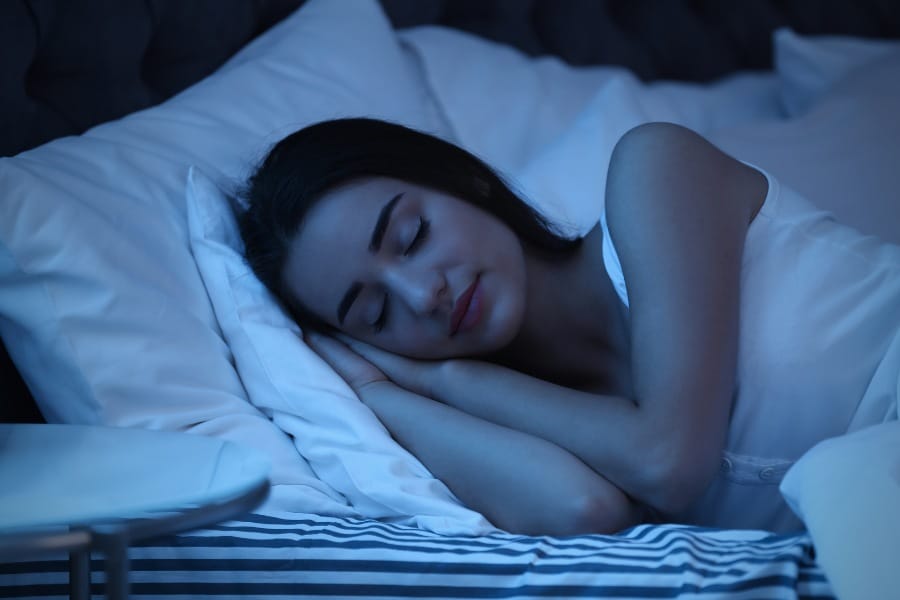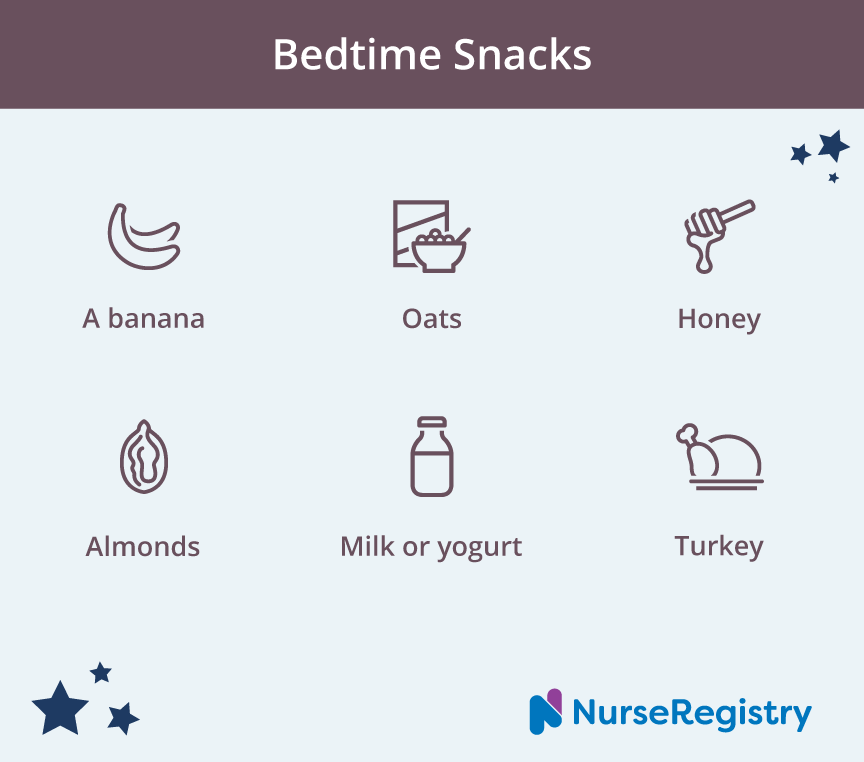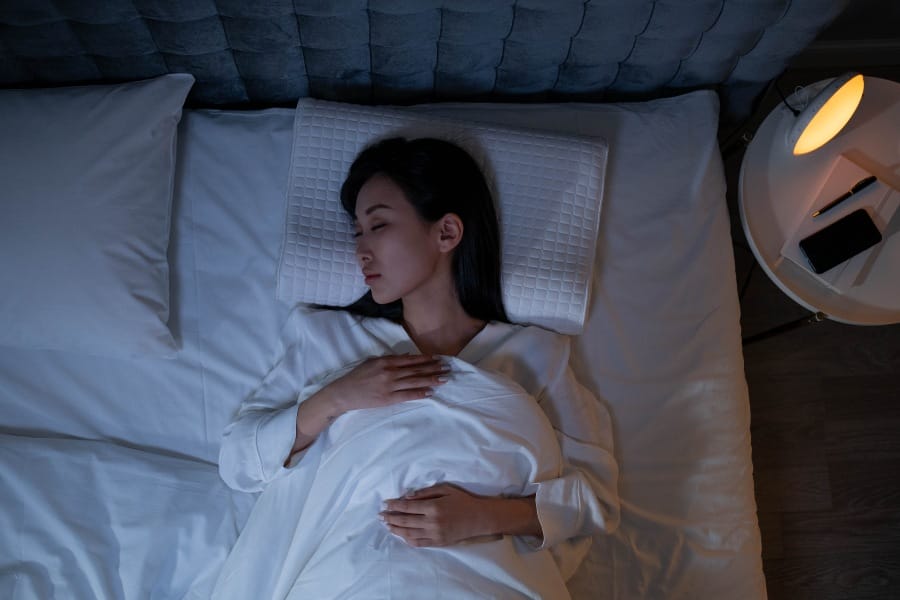We’ve all experienced the frustration of a poor night’s sleep – tossing and turning, struggling to fall asleep or stay asleep, and waking up feeling groggy and unrested.
What causes sleep problems are numerous, ranging from poor sleep habits like inconsistent bedtimes to stress and underlying medical conditions.
Believe it or not, consistently poor sleep can have profound effects on our lives – (fatigue, irritability, lack of concentration), and even long-term health consequences.
If you’re ready to bid farewell to restless nights and embrace the rejuvenating power of quality sleep, this comprehensive guide is for you.
We’ll cover everything from optimizing your sleep environment to developing healthy habits and addressing underlying issues that may be keeping you from getting the restorative slumber you deserve.
How to Improve Your Sleep
IN THIS ARTICLE
Sleep is not just a luxury but a vital component of overall well-being.
When we sleep well, our bodies undergo restorative processes that rejuvenate our minds and bodies, boosting our immune function, cognitive performance, and emotional regulation.
On the flip side, the effects of insufficient sleep can have on our health and well-being are numerous – from increased risk of chronic diseases like obesity, diabetes, and heart disease, to impaired memory, mood disturbances, and decreased productivity.
The idiom “I’ll sleep when I’m dead” couldn’t be further from the truth – prioritizing sleep is essential for a long, healthy, and fulfilling life.
So, let’s dive into 10 strategies and tips that can help you turn your sleep struggles around and wake up feeling truly refreshed.
1. Limit Caffeine and Nicotine

Caffeine is intended to keep you awake and there are absolutely zero benefits to nicotine.
Both act as stimulants that can disrupt your sleep cycle. If you do smoke, consider quitting with the help of these 8 tips.
2. Avoid Alcohol Before Bed
Sure, alcohol can sometimes make you feel sleepy, but it’s never going to lead to restful sleep.
This is another stimulant that can affect your sleep cycle. Enjoying one to two drinks is fine, but make sure to do it well before bed time.
3. Avoid Eating a Large Meal Right Before bed

Try to make dinner time earlier in the evening and avoid snacking right before bed. It can lead to indigestion for some people.
Plus, some people just find it hard to fall asleep with a full belly. It can be a bit uncomfortable and lead to poor sleep patterns.
4. Avoid Drinking Too Many Fluids Before Bed
Drinking a lot of fluid before bed can result in frequent bathroom trips, which interrupts sleep. Try to limit your liquid intake within 2 hours of your planned bed time.
5. Cut Back on Sugary Foods and Processed Carbs
Refined, processed carbs include white rice, white bread, and pasta. Throughout the night, sugars and refined carbs pull you out of the deep, restorative phases of sleep; you may not fully wake up, but the disturbance will be enough to make you feel exhausted the next day.
Orexin is a neuropeptide that regulates arousal, wakefulness, and appetite. Studies have shown that intake of sugar decreases the activity of orexin; this leads to fatigue.
This gives us the feeling of a “sugar crash”, which is why we want to nap after eating high-carb or high-sugar foods. Napping, however, can lead to bad sleeping habits.
On top of that, orexin can, in turn, affect mood and may even result in depression in some people.
6. Creating an Optimal Sleep Environment
An optimal sleep location is often overlooked, but creating a sleep-friendly bedroom can have a profound impact on your ability to fall and stay asleep. Start by investing in a high-quality mattress that provides the right balance of support and comfort for your body type and sleep position.
Comfortable sheets are also crucial – look for breathable sheets and pillows that promote airflow and temperature regulation.
Next, tackle noise and bright light levels.
Consider using a white noise machine or Alexa. Or earplugs to block out disruptive sounds, and invest in blackout curtains or an eye mask to create a cave-like environment conducive to deep, uninterrupted slumber.
Finally, the temperature your bedroom is set to can also affect your sleep quality – most experts recommend keeping it cool, around 65°F (18°C).
7. Establishing a Consistent Sleep Schedule

Our bodies thrive on routine, and what time you consistently go to sleep can significantly impact our sleep quality.
Aim to go to bed and wake up around the same time every day, even on weekends. This consistency will help regulate your body’s internal clock, making it easier to fall asleep and wake up feeling refreshed.
But how do you determine what duration is ideal for sleep? While individual needs vary, most adults require between 7-9 hours of sleep per night.
Pay attention to how you feel throughout the day – if you’re consistently feeling sluggish or struggling to concentrate, you may need to adjust your sleep schedule accordingly.
8. Practicing Good Sleep Hygiene
This method of improving your sleep may surprise you and goes beyond just your bedtime routine – it’s a holistic approach to cultivating healthy sleep habits.
We recommend developing a relaxing bedtime routine that helps signal to your body that it’s time to wind down.
This could include taking a warm bath, reading a book, practicing gentle yoga or meditation, or enjoying a cup of herbal tea. The key is to find what works best for you and stick to it consistently.
Key tip: Opt for a book to read rather than a Kindle or your phone. The natural light of your room and the normal book pages will do wonders rather than consuming more blue light before bed.
Additionally, managing stress and anxiety is also essential for promoting sound slumber. Incorporate stress-relieving activities like deep breathing exercises, journaling, or listening to calming music into your daily routine.
If racing thoughts or worries keep you up at night, try jotting them down and setting them aside until the morning – this can help clear your mind and allow you to relax.
9. Exploring Natural Sleep Aids

In addition to lifestyle changes, sleep aids can be a helpful tool in your quest for better rest.
Essential oils like lavender, chamomile, and bergamot are known for their calming and sleep-promoting properties – add a few drops to a diffuser or apply them topically before bedtime.
Supplements like melatonin can also be effective for some individuals, especially those struggling with jet lag or adjusting to a new sleep schedule.
However, it’s important to consult with your healthcare provider before trying any new supplements, as they can interact with certain medications or underlying conditions.
Finally, don’t overlook the power of a cozy weighted blanket designed to promote relaxation and improve sleep quality. While the science is still emerging, many people find these products helpful in reducing anxiety and promoting a sense of calm.
10. Lifestyle Changes for Better Sleep
Our daily habits and choices can have a significant impact on our sleep quality. What diet we consume and exercise routine we follow can influence our ability to fall and stay asleep. Aim for a balanced diet rich in sleep-promoting nutrients like tryptophan (found in turkey, nuts, and seeds), and avoid heavy or spicy meals too close to bedtime.
Regular exercise can also improve sleep by reducing stress and anxiety, but timing is key – vigorous workouts should be completed at least a few hours before your desired bedtime to avoid overstimulation.
Incorporating relaxation techniques like meditation, deep breathing, or progressive muscle relaxation into your daily routine can also be a powerful tool for promoting better sleep.
These practices can help calm the mind and body, reducing stress and anxiety that can interfere with sound slumber.
Bonus: Bedtime Snacks
For some people, snacks before bed may cause indigestion and discomfort. For others, a snack before bed may help ease them into their bedtime routine. If you prefer a snack, try one of the following:

Banana. Bananas are packed with magnesium, which works as a muscle relaxant. They also contain serotonin and melatonin, both of which support a good night’s rest.
Honey. A teaspoon can stimulate the release of melatonin. It can shut off orexin, which keeps us awake and alert.
Oats. Unlike sugary cereals, oats won’t cause sugar spikes. In fact, oats steadily raise blood sugar and contain vitamins and minerals that naturally encourage the production of melatonin.
Tukey. This is one food known for causing sleepiness. It is full of tryptophan, an amino acid that triggers the production of serotonin and melatonin. It’s also full of protein, so it will help you stay full through the night.
Milk or yogurt. Both contain tryptophan, which has a calming effect on the brain.
Almonds. A vegan alternative to turkey and milk, almonds contain tryptophan and magnesium, along with a good source of healthy fat.
Try these combinations before bed.
- Oatmeal with warm milk
- Banana and honey in yogurt
- Half a turkey sandwich
Remember, you don’t want to consume too much food about two hours before bedtime.
Managing Sleep Disorders
For some individuals, common sleep disorders like insomnia, sleep apnea, or restless leg syndrome may be the root cause of their sleep struggles.
The cause of sleep disorders can vary from underlying medical conditions to lifestyle factors or even genetics.
If you suspect you may be dealing with a sleep disorder, it’s important to seek professional help from a qualified healthcare provider or sleep specialist.
They can help accurately diagnose the issue and recommend appropriate treatment options, which may include medications, therapy, or lifestyle changes tailored to your specific needs.
While addressing a sleep disorder can be challenging, the benefits of restoring quality sleep are well worth the effort. Improved energy levels, cognitive function, and overall well-being are just a few of the rewards that await.
Sleep and Mental Health

The relationship between sleep and mental health conditions like depression and anxiety is a complex and bidirectional one.
Poor sleep can exacerbate symptoms of mental illness, while conditions like depression and anxiety can make it harder to get the restorative sleep our bodies need.
How sleep impacts cognitive function and emotional well-being is an area of ongoing research, but we know that chronic sleep deprivation can contribute to mood disturbances, difficulty regulating emotions, and impaired concentration and memory.
Properly addressing sleep issues is often an important component of comprehensive mental health treatment, as improving sleep quality can have a positive ripple effect on overall well-being.
Cognitive-behavioral therapy for insomnia (CBT-I) is one evidence-based approach that can help break the cycle of poor sleep and mental health struggles.
Sleep Myths and Misconceptions
Just for fun, let’s break down a couple of sleep misconceptions.
One pervasive myth is that everyone needs a full 8 hours of sleep per night – in reality, individual sleep needs can vary widely based on factors like age, genetics, and lifestyle.
Another common myth regarding sleep is the belief that catching up on sleep over the weekend can counteract the effects of sleep deprivation during the week. While it may provide some temporary relief, this approach doesn’t allow for the consistent, restorative sleep our bodies crave.
It’s also important to avoid common misconceptions like assuming that sleeping pills are a safe, long-term solution for insomnia or that watching TV in bed is harmless. Understanding the truth behind these myths can help us make more informed choices about our sleep habits
Take Your Health to the Next Level
As you can see, taking care of your sleep quality is synonymous with taking care of your overall health.
Do you believe you could benefit from in-home nursing care? From assistance with everyday tasks to wound care and medication management, private duty nurses can be a godsend.
This is especially true for chronic illnesses or post-surgery recovery care.
Learn more about NurseRegistry’s in-home nursing care today.






